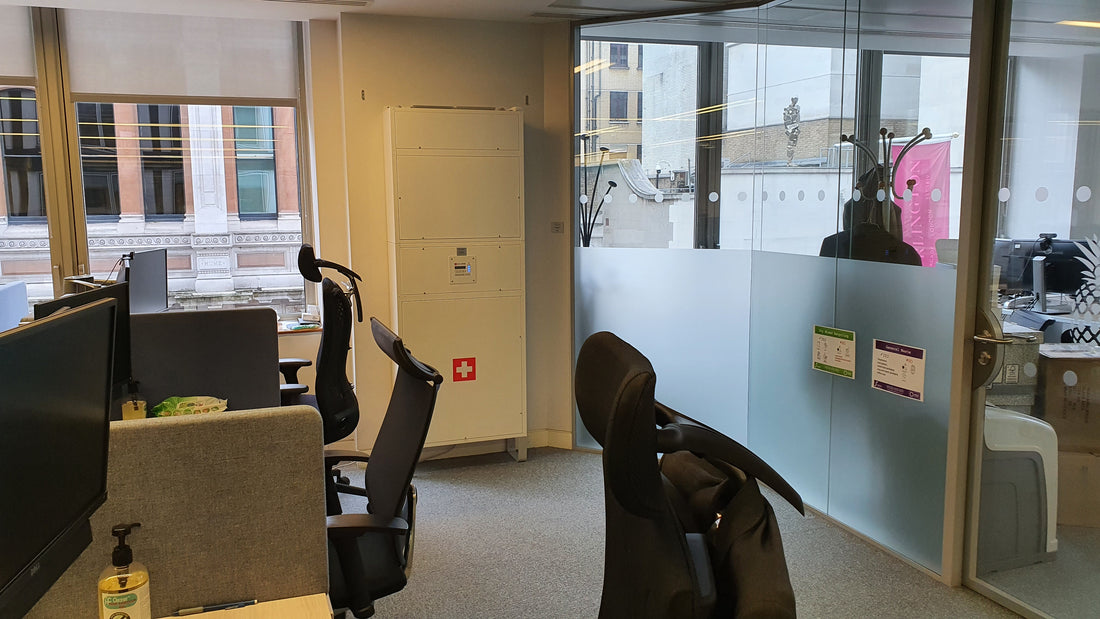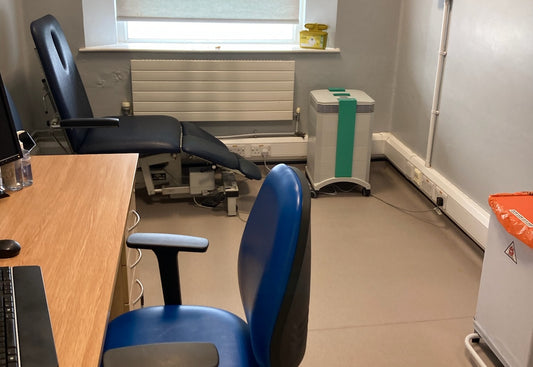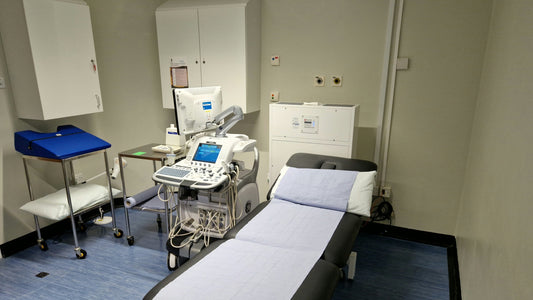Have you had time off work during the winter due to a cold or flu? Or do you and your colleagues always feel you have to 'struggle in' or go back before you were really well, because of pressure from work? If it's the latter, then it's likely that your office is at times a hotbed of germs (microbes) - and that poses an imminent threat to people suffering with allergies and asthma. So in order to germ-proof your office, we have rounded up some of the latest tips for cleaning the air in your office and to help keep the workplace bug count down.
Cold and flu viruses, food poisoning bacteria, and fungi that trigger asthma may be lurking invisibly on all kinds of office equipment that you handle every day. So it's worth knowing where the hotspots for germs in your office are. Microbiologists have carried out many surveys of microbe counts in the office environment, and where these findings are. Here's a typical example for germs in your place of work:
- Toilet seats have around 50 microbes per square inch
- Photocopiers have around 70 microbes per square inch
- A computer mouse houses nearly 2,000 microbes per square inch
- A computer keyboard has another 50% more microbes as a computer mouse (around 3,300 microbes per square inch)
- The office phone is the worst hot spot for microbes - with over 25,000 microbes per square inch
Charles 'Dr. Germ' Gerba of the University of Arizona points out that shared pens, lift buttons, door handles, vending machine buttons, escalator handrails, coffee mugs and chair armrests are also notorious for collecting germs. The water cooler might be the worst place of all for bugs - the US public health organisation NSF International found that the tap might harbour as many as 2.7 million germs per square inch! And in the restroom, there are far more germs on the toilet handle and on the door handle than on the toilet seat itself.
So, how can you protect yourself and fight off all these office microbes? The answer is to germ-proof your office! It makes sense that the office cleaner would concentrate cleaning efforts on the washrooms and probably stay away from your desk for fear of disturbing your work, but do you clean your keyboard and screen every day? It'd be a sensible precaution. First, hold your keyboard upside down and brush out the dust and dirt between the keys with a soft brush. Then wipe over with an alcohol swab, or a lint-free cloth moistened with alcohol. You might want to cover your keyboard with a dust cover when not in use. If you have a mouse attached to your keyboard, clean this in the same way. Apply the same treatment to your phone.
Alcohol is a good component for antiseptic wipes because it draws water away from bacteria, viruses, and fungi, making it harder for them to survive. Antibacterial wipes won't kill flu and cold viruses, so go for an antiseptic product instead (and be wary of claims of killing 99.9% of all germs - it can be hard to back these up with scientific evidence). Keep one of these products on your desk and use it to keep your hands clean (as well as regular hand washing while in the office). And when you're having a coffee, stick to disposable cups or have your own mug that you wash regularly.
The air in your office should be cleaned by using a professional office air purifier. A good air purifier uses true HEPA filtration and is able to filter 99.95% of particle pollution down to 0.3 microns. It will take out bacteria and viruses, as well as other harmful pollutants that can trigger allergy and asthma symptoms. Toner dust and other particulate pollution such as traffic pollution are common problems. If your office has central ventilation, chances are that bacteria, viruses as well as toner dust and other pollution is consistently spread throughout the entire office. You should check if your office uses an HVAC system and if the system is equipped with an appropriate filter. Another option is to clean your individual room through the use of a stand-alone air purifier.
Contact us anytime on 0203 176 0524, for a free consultation about how you can best protect yourself and everyone around you in your office.




